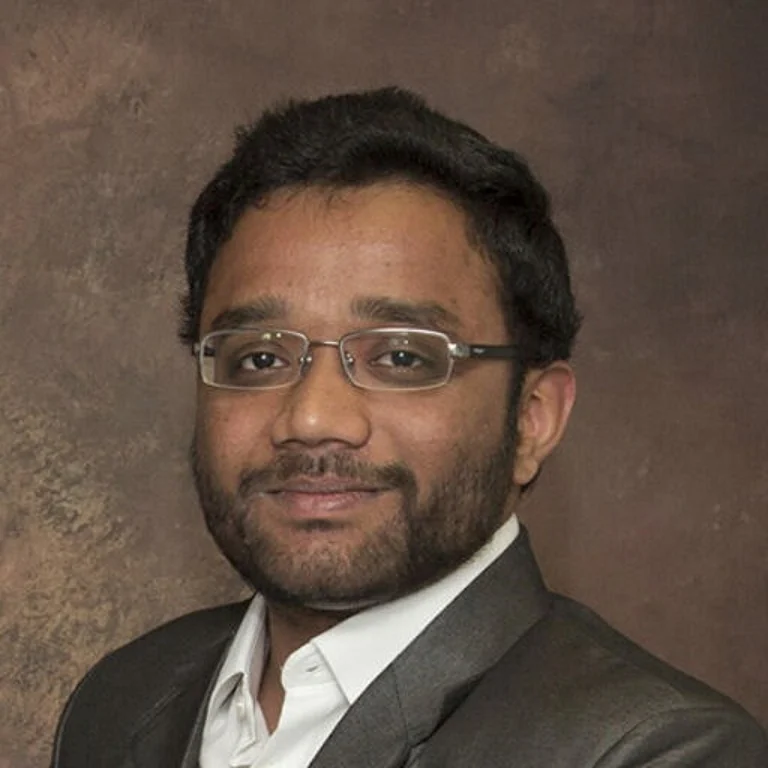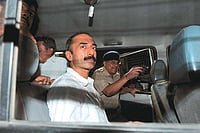IN 1995 Bal Thackeray singlehandedly ensured the victory of the Shiv Sena-BJP in Maharashtra. Three years later the same Thackeray singlehandedly ensured the defeat of the saffron combine. He has targeted some "non-performing" ministers and shakha pramukhs as he feels they are responsible for the debacle. He says he is going to axe them—a step that would be grossly unfair. Since he himself called all the shots in the administration as well as the organisation, he should be gracious enough to accept the blame.
The signs of public dissatisfaction with the government have been apparent to any discerning observer of the political scene for a very long time. But those who were puffed up with their own importance and sense of power could not read the writing on the wall.
The state's erstwhile Congress rulers were accused of being corrupt and venal. But they were not arrogant. Those who succeeded them seemed to have continued the legacy of corruption and venality despite having been elected on an anti-corruption plat -form. They might have got away with this if they had not displayed unmistakable streaks of arrogance at the same time.
Bal Thackeray, like most leaders who have achieved their goal of capturing power by channelising popular discontent and organising the lumpen element, is a self-confessed autocrat. He does not tolerate any criticism. In fact, he dislikes it so much that his followers have even physically harmed his critics. Opposition leader Chagan Bhujbal and newspaper editor Nikhil Wagle have physically experienced the Sena's wrath. Those who were lucky to escape the tiger's teeth have not escaped the claws bared in the Sena chief's acerbic writings and statements. Visions of such retribution have effectively silenced those who may have been expected to speak up.
The resultant silence is translated into protest votes at election time. Many educated citizens had voted for the combine in the last elections. They were disillusioned within a few months of the new government taking office. To them the Enron "volte face" was the first indication of the combine's doublespeak. The combine's tall talk of fighting the ogre of corruption was a mere show, they said. Its attempts to befool the public were amateurish and amounted to an insult to their intelligence. The people's welfare was relegated to second place because by renegotiating the agreement with Enron, the delivery of much-needed electricity was delayed.
But political corruption is not as relevant to the masses as bread and butter issues like prices of essential commodities, housing and employment. Political corruption is an issue that troubles mainly intellectuals. Corruption becomes a problem of ordinary people when it touches their daily lives. If they have to pay to obtain ration cards or to make railway reservations then there is resentment. This was the situation during the Congress rule. People expected miracles but low-level corruption continued after the new government was installed and led to disappointment in the poorer sections of the populace.
An even greater source of cynicism was the reneging on promises to provide housing to slum-dwellers and employment to the youth. Such promises are not easy to fulfil. But the Sena had raised expectations beyond the normal levels. The Michael Jackson concert, for instance, which was organised with much fanfare in the glare of publicity, was touted as a means for garnering resources to be later used for solving the unemployment problem. It did nothing of the sort. In fact, there was no word from the First Family about the use to which this money was put.
A clear indication of which way the wind was blowing could be had from conversations with ordinary people like policemen, taxi drivers and household maids. The general tenor of their talk was that the
leaders had done well for themselves whereas the poor salaried employees and workers were left with only broken promises and dashed hopes. Policemen, for instance, were great supporters of the Sena when it was not in power. If the Sena leadership had been more vigilant and perceptive it would have learnt that this support could no longer be counted upon, specially at the hustings.
After the massive election rally addressed by Atal Behari Vajpayee and Bal Thackeray at Shivaji Park on February 25, many policemen, like other common people, remarked about the intemperate language used by the Sena chief and about his mimicking of Sonia Gandhi. Many women in the audience were reported to have left the meeting in disgust. It is true that such ribaldry would have amused the unlettered at another time or another place. But coming on the heels of broken promises and deflated expectations, they were no longer a source of merriment.
There are other reasons, of course, why the Sena-BJP combine lost. One reason was that the Congress roped in Muslims and Dalits to fight the saffron alliance. The various RPI factions, to which most Dalits are affiliated, joined together to avenge the Ramabai Colony firing in which 11 Dalits were shot dead by the police. It is ironic that one junior police officer, who ordered the firing, could now be said to be partly responsible for shattering the fortunes of an elected government.
But the disenchantment of the masses with the Sena had begun even earlier. The placement of known corrupt officers in key positions in the government had spread concern in the bureaucracy and the police. And when the Prakash Kini case hit the headlines, even common Sainiks realised that their leaders were more interested in the monied class than in dispossessed sons of the soil.
If the Sena plans to regain lost ground, its chief will have to modify his own thought processes. He must understand that the demagoguery and coarse humour that attracted followers will not help sustain his hold over them unless his party is able to perform. When he greets a newfound friend like Suresh Kalmadi, he should not refer to him in public as a "frog who jumps constantly from spot to spot". If he finds that the Muslims still hesitate to vote for his party despite all the conciliatory gestures he has made to coax them to forget his oft-stated feelings about the community, he should not threaten to despatch them to Pakistan. Instead, he should instruct his Sainiks to shut down the parallel courts they conduct in the shakha offices and to stop asking for "voluntary" donations during festivals. And, he should instruct them not to dig up cricket pitches because the Mumbai public are more committed to cricket than to politics, specially the politics of hate and intolerance.
(The writer, a former commissioner of police, lives in Mumbai)
























